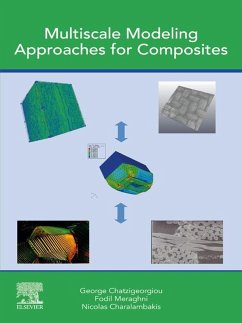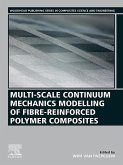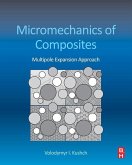The book starts by covering the theoretical underpinnings of tensors and continuum mechanics concepts, then passes to actual micromechanic techniques for composite media and laminate plates. In the last chapters the book covers advanced topics in homogenization, including Green's tensor, Hashin-Shtrikman bounds, and special types of problems. All chapters feature comprehensive analytical and numerical examples (Python and ABAQUS scripts) to better illustrate the theory.
- Bridges theory and practice, providing step-by-step instructions for implementing multiscale modeling approaches for composites and the theoretical concepts behind them
- Covers boundary conditions, data-exchange between scales, the Hill-Mandel principle, average stress and strain theorems, and more
- Discusses how to obtain composite properties using different boundary conditions
- Includes access to a companion site, featuring the numerical examples, Python and ABACUS codes discussed in the book
Dieser Download kann aus rechtlichen Gründen nur mit Rechnungsadresse in A, B, BG, CY, CZ, D, DK, EW, E, FIN, F, GR, HR, H, IRL, I, LT, L, LR, M, NL, PL, P, R, S, SLO, SK ausgeliefert werden.









